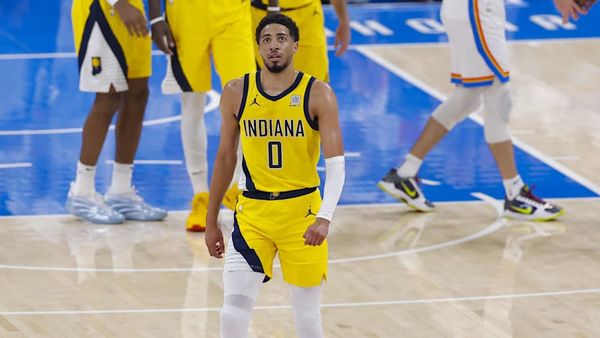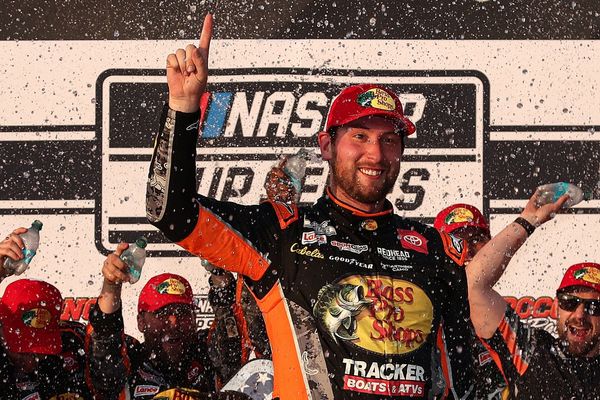
Netflix
TV: Five Came Back (2017, US) directed by Laurent Bouzereau – out now
Great men of cinema talking about other great men of cinema? If you can set aside the sausage fest, this is a great prestige war documentary in which living directors – Steven Spielberg (also an executive producer), Paul Greengrass, Guillermo del Toro, Lawrence Kasdan and Francis Ford Coppola – talk about their idols Frank Capra, William Wyler, George Stevens, John Ford, John Huston.
Five Came Back concerns itself with a sliver of film history – the late 1930s into the second world war – in which the dominant voices of US auteur cinema decided to try to address the threat of fascism. Where Hitler recognised the ability of cinema in its purest form to function as a propaganda tool, these five US filmmakers contributed to their own country’s war effort and were impacted forever by their experiences. Narrated by Meryl Streep, Five Came Back is a call to arms by Hollywood liberals in today’s newly authoritarian political era. A film buff’s film, a grand creation of American mythology and a slick, entertaining, informative work.
TV: Grace and Frankie, season three (2017, US) created by Marta Kauffman and Howard J Morris – out now
Does Grace and Frankie mark a new genre: the odd-couple boomer sitcom? The new season sees our titular heroines (Jane Fonda and Lily Tomlin – both glorious and clearly having a tonne of fun) launch a new business, Vybrate, aimed at selling vibrators to seniors. But as Gracie’s daughter Brianna says, “There are problems in vibrator land.” The duo’s combined age of 146 is making a business loan impossible – banks are convinced they’ll die before repaying the balance.
The show’s self-awareness of its boomer humour manifests best in Frankie’s better-than-ever dialogue – she’s taken up a whole new spectrum of outdated millennial internet vocab: true dat, hey girrrl! And though the feminist critique inherent in the main plotline is legit, Grace and Frankie lives by its breezy comedic tone: it’s rare to see a show that is both sweetly sincere and doesn’t take itself too seriously.
Film: The Assassination of Jesse James by the Coward Robert Ford (2007, US) written and directed by Andrew Dominik – out now
After the success of Chopper, Australian director Andrew Dominik was whisked into the Hollywood vortex. It is interesting, then, that his first American film tells the US’s equivalent of the Australian bushranger tale of Ned Kelly. Well, a version of that myth.
Robert Ford (Casey Affleck), fascinated by outlaw Jesse James (Brad Pitt) since childhood, attempts to join his idol’s gang, but things quickly turn sour. Where last year’s Jackie turned the conventions of a biopic against themselves to create a critique of that genre’s tendency to self-mythologise, The Assassination of Jesse James formed a similar kind of precedent. The anti-Western was based on the perspectives of a series of deeply untrustworthy characters involved in crime in the US’s lawless, formative years. Helped by a masterful visual device, the film is by turns vivid and impressionistic: Jesse James was sight-impaired, and Dominik develops a series of lenses that recreate James’ condition, with the edges of the frame splintering into soft, radial abstraction, as if we are literally seeing the world through his eyes.
It’s a divisive film. Some critics loathe it, but it remains one of my favourite independent films of the last 10 years, as it finds new, oblique ways to make tell the stories of history and myth.
Honourable mentions: Aladdin, Stand By Me, Adaptation, Frances Ha, The Way We Were (film, all out now), and The Get Down, part two (TV, 7 April), Babel (film, 28 April).
Stan
TV: Twin Peaks, seasons one and two (1990–1991, US) directed by David Lynch and Mark Frost – out now
A much-belated season three of David Lynch and Mark Frost’s sublime early-90s arthouse soap-opera noir premieres on 22 May, which makes right now the time to return to the original, in which the horrific murder of beautiful homecoming queen Laura Palmer unravels an entire culture of domestic horror and mystical evil in the small, mundane town of Twin Peaks.
Twin Peaks is most often remembered for its darkness and its narrative incongruities (owls, tiny men dancing, ladies with logs) – and if you’ve never seen it before, you have a glorious experience ahead of you. But if you’re watching it a second time around, this is your opportunity to revel in the romance of the show. Spend time in the Great Northern Hotel and the RR Diner, order cherry pie (“this must be where pies go when they die”), watch Audrey dance by the jukebox, see Donna and James embrace in the woods, hear Agent Cooper relay his Buddhist-inflected life musings, and remember how exquisite Lynch’s world can be.
Twin Peaks isn’t just a habitat for murder and weirdness, it’s a place where you can fall in love with a stranger in a roadside diner over a cup of coffee as black as midnight on a moonless night.
Jules et Jim (1962, France) written and directed by François Truffaut – out now
At first it feels disconcerting, watching an ostensibly idealistic film as Jules et Jim in today’s age of cynicism. What holds is the emotional sense that François Truffaut’s French new wave classic makes.
As it opens in the innocent pre-war years, the film’s titular pair both fall for exuberant, beautiful Catherine (Jeanne Moreau), and their friendship and mutual love binds them together for life. Beginning in a mood of elation, the camera whips around its characters in fluid youthful movements. But a cloud of terrible sadness breaks over the film’s second and third acts after Jules returns from the first world war. The slow creeping sense of disappointment, and the men’s refusal to recognise that their happy days with Catherine have ended and they’d best stop trying to resurrect the past, feels as true to life as ever.
Honourable mentions: Everybody Wants Some!! (film, 5 April), Back to the Future trilogy (film, 13 April), 400 Blows (film, out now)
Dendy Direct
Film: Train to Busan (2016, South Korea) directed by Yeon Sang-ho – out now
Variously classed as “public transportation horror” and “an allegory of class rebellion”, Train to Busan is a highly charged zombie thriller for which a mere plot synopsis cannot do justice.
The opening scene perfectly encapsulates what’s to come: a distracted truckie entering a nuclear zone on the outskirts of a South Korean industrial city encounters a bump in the road. He drives carelessly on, leaving the camera to settle on the dead deer left mauled in his wake. The deer begins to twitch, then somersaults back to life: we are at ground zero of a new zombie outbreak. It’s a brilliant introduction to the film’s obsession with government inaction, moral solipsism and, eventually, the redemptive power of love.
Like the Die Hard films, Train to Busan takes place in a tightly contained period of space and time: a self-involved, divorced father and his daughter board a train to get to a safe city, fending off zombies all the way. Following in the footsteps of Haemoo and Snowpiercer, this is what the Korean film industry excels at producing: kooky, high-concept genre films that draw on the existential and political crises of today.
The Family Fang (2015, US) directed by Jason Bateman – out now
Actor and filmmaker Jason Bateman is best known as Michael Bluth, the lynchpin of one of television’s most dysfunctional families on Arrested Development. What perfect sense it makes that this directorial project offers another portrait of a family drawn together by the precise same traumas breaking them apart.
Where Arrested Development drips with absurdity, The Family Fang glimmers with melancholic wit. Nicole Kidman and Bateman play siblings Annie and Baxter, scarred well into adulthood by their performance artist parents who originally named them “A” and “B” and used them in shock-and-awe artworks of bizarre public disruption. With its ambiguous emotional undertow and sideways critique of the art world, The Family Fang is the kind of film that would have earned a theatrical release in arthouse cinemas a decade ago. Today, VOD is its home, and I’m thankful for it. Bateman’s smart, small film does a wonderful job of relaying the paradox that your family members know you least – and best.
Foxtel Play
Film: The Talented Mr. Ripley (1999, US) directed by Anthony Minghella – out now
Almost 20 years after it’s release, Anthony Minghella’s adaptation of Patricia Highsmith’s crime novel – of a poverty-stricken, pathological liar who assumes a false identity to gain entry to the upper class – is as terribly stressful and sad as ever: it hasn’t dated a moment. There’s a perversity and a self-loathing here that barely surfaced in the most recent adaptation of Highsmith’s work, Todd Haynes’ Carol. But the template, a portrait of loneliness, remains the same: queer sexuality pushed toward criminality; romance pushed to obsession; outsiders circling each other in twin solitude, a sense of being on a perennial perimeter.
Like Carol’s Therese Belivet, Tom Ripley (a plump-faced, heartbreakingly empathetic Matt Damon) lives outside society and longs to get in. Unlike Therese, his fate is an unhappy one. The way that unhappiness unfolds thrills until the final moment.
Honourable mentions: Veep, season six (TV, out now), High-Rise, Good Night and Good Luck, The Simpsons Movie, A Single Man (film, all out now).
SBS On Demand
TV: The Young Pope (2016, Italy) directed by Paolo Sorrentino – first episode out 19 April
The genius of auteur filmmaker Paolo Sorrentino’s cinematic series about the Vatican is that it’s not about religion. Nor is it about its ostensible premise: the idea that a 40-something American (Jude Law, as sharkishly handsome as ever, as Lenny, or Pius XIII) has assumed the role of Pope for the first time in a masterstroke of religious rebranding.
No, this English-language Italian series marvellously applies the logic of mobsters and politics – of factions and fantasies of male power constantly jostling and decapitating and winning and losing – to the Vatican. The cardinals are corrupt and the Pope is a player. It’s not about faith; it’s about the institution of the Vatican and its imminent decline. All along the way, the identity of Pope Pius XIII unravels. Who is he – a narcissist? A tyrant? A lost boy looking for God? Perhaps even a non-believer? The Young Pope keeps us guessing every minute. The most compulsory series this year since Big Little Lies.
Film: Michael Clayton (2007, US) written and directed by Tony Gilroy – out now
So much Hollywood fare is about American myth-making, that it often feels like the smartest of it engages in myth-breaking. In writer-director Tony Gilroy’s (The Bourne Identity) excellent corporate thriller, George Clooney plays a fixer – a kind of corporate janitor who cleans up the personal, criminal messes of his law firm’s richest clients – before he becomes a target himself. Sallow-skinned, gaunt-cheeked and padded-shouldered, Clooney assumes a kind of vampiric presence in the film’s cool-toned nighttime cityscapes.
Unlike many films chronicling corporate crime, such as Arbitrage and 99 Homes, Michael Clayton runs on a theme of redemption rather than punishment. Most amazing is how Gilroy critiqued the culture of entitlement and privilege well ahead of those two words’ entrance to popular vocabulary – and even ahead of the global financial crisis.
Film: Last Year at Marienbad (1961, France) directed by Alain Resnais – out now
Another great film of the French new wave and what a delight to find it in SBS On Demand’s eclectic catalogue. Last Year at Marienbad unfolds like dream you remember years after the fact. Technically, it’s a drama-mystery set in a rich, ornately designed chateau populated by apathetic rich people, two of whom form a relationship – and perhaps they were a couple once before. But, much like Tarkovsky’s Solaris or Kubrick’s 2001: A Space Odyssey, this film is an enigma best experienced rather than analysed: let it wash over you as an a series of moods, abstracted sounds and images. “Don’t look for a connection,” as one of the characters says. It’s an instruction to those of us expecting a linear plot: “There’s no connection.”
ABC iView
Robert McFarlane: The Still Point (2017, Australia) directed by Mira Soulio – out now
“I wanted to take photos that meant something,” says legendary photographer, Robert McFarlane, the subject of a compelling new 28-minute documentary by Mira Soulio. McFarlane’s photography was in sync with the ordinary life of both his own family and his society (including the huge changes of the 1960s), and he captured how those macro shifts manifested in the tiny moments of the lives of those who were otherwise invisible.
In black and white, we see a boy being slapped by his principal at school assembly, Charlie Perkins in contemplation on a train, a nude woman who seems totally in charge of her sexuality. Soulio floats her interviewees’ voices over a succession of McFarlane’s photos, plunging us into the world of Australia from the 1960s onward, splintering, as it was before the artist and his lens.
Shock Art (2017, Australia) directed by Sam Bodhi Field – out now
Another series of morning-tea-break sized contemporary art shows exclusive to iView. This time, art historian Dr Christina Chau visits artists working with the most controversial themes and material. Dildos, excrement, nudity … it’s all treated with a lucid balance of intellectual curiosity and good humour.
Funnily enough, Shock Art’s host is often more compelling than much of the art in question. Dr Chau is a wonderful guide who asks big, smart questions: if art can change minds, is shocking people more or less effective? And is it even possible to shock people anymore?







